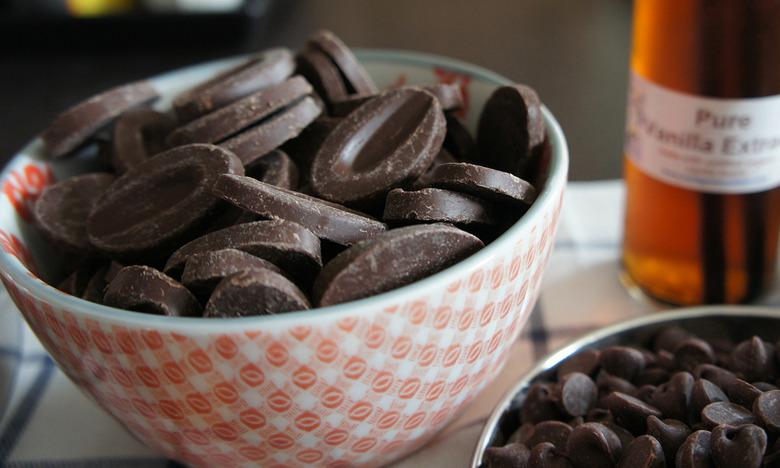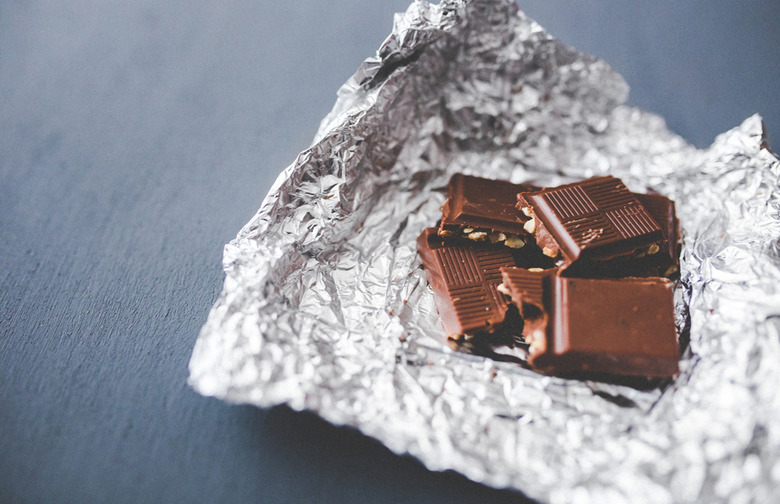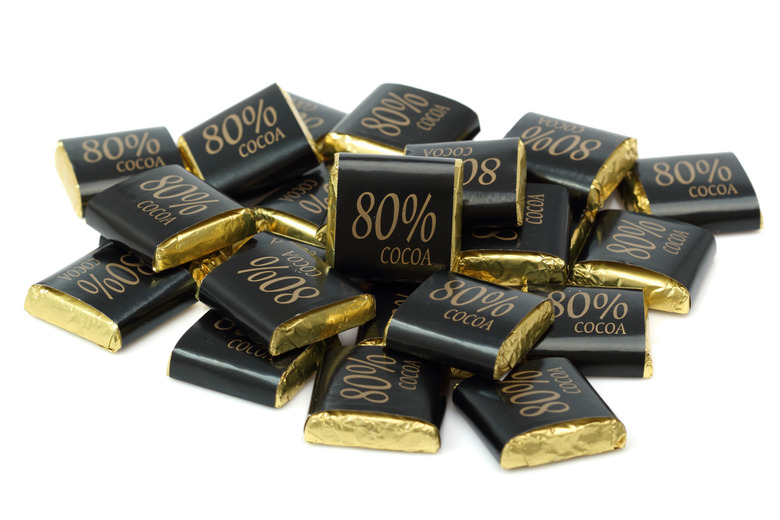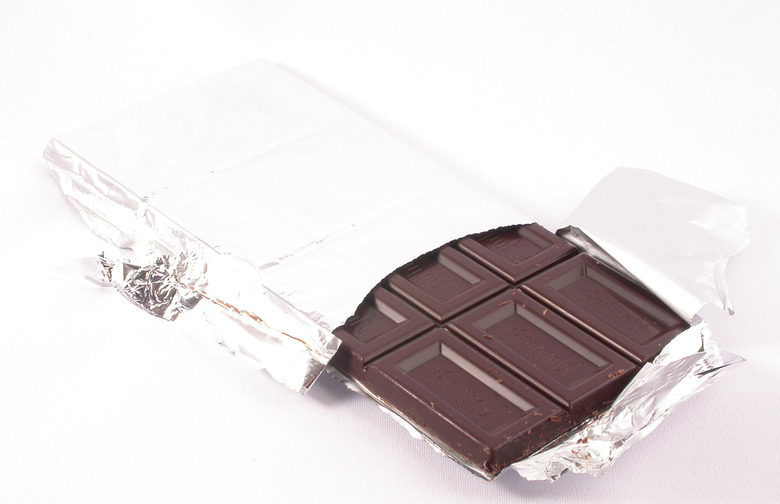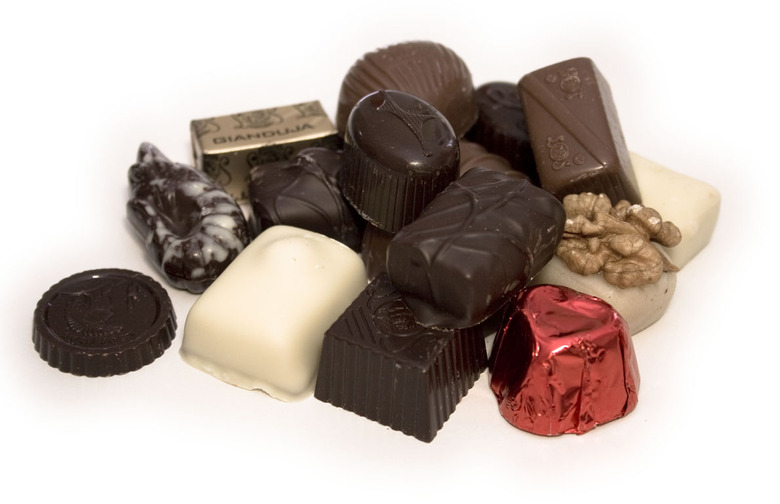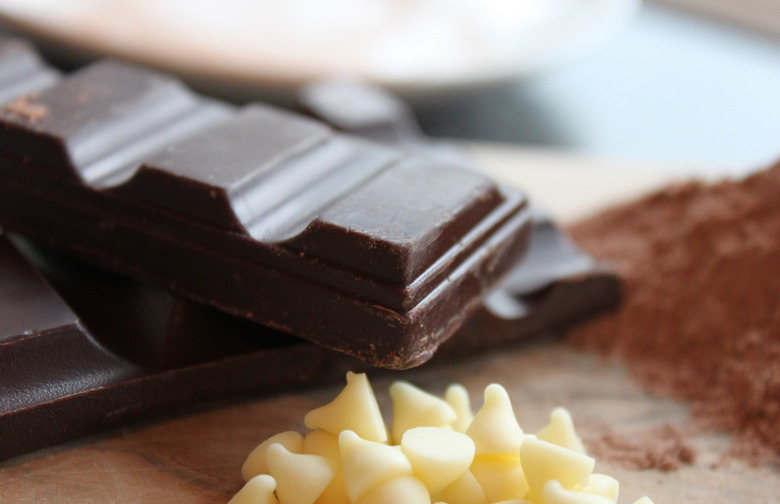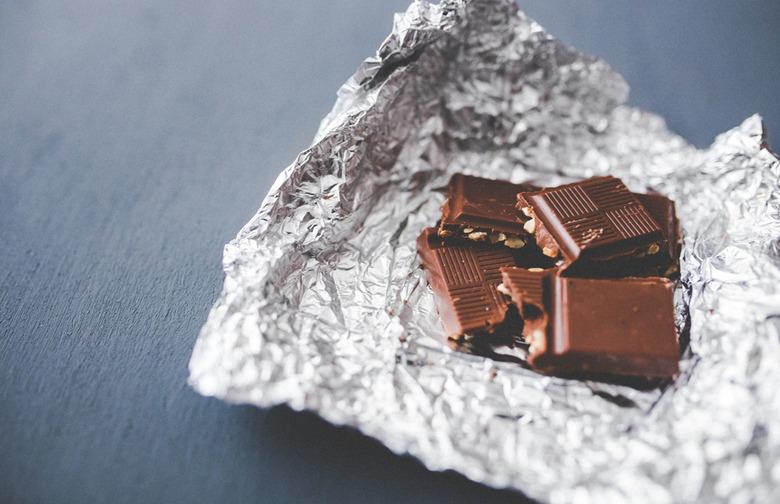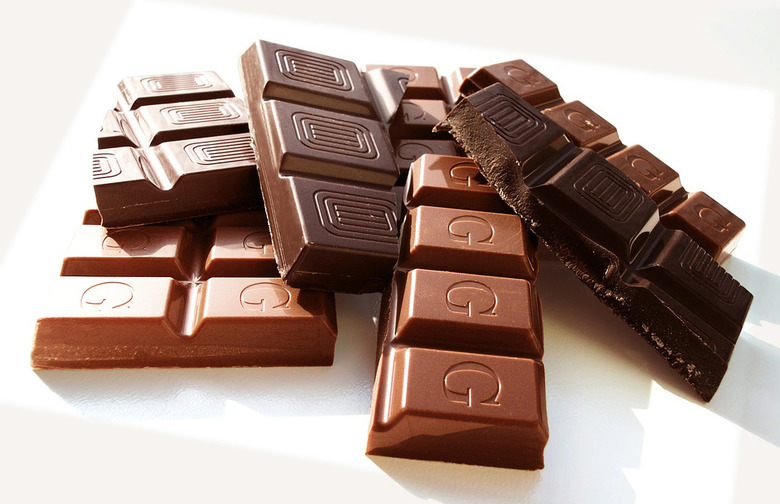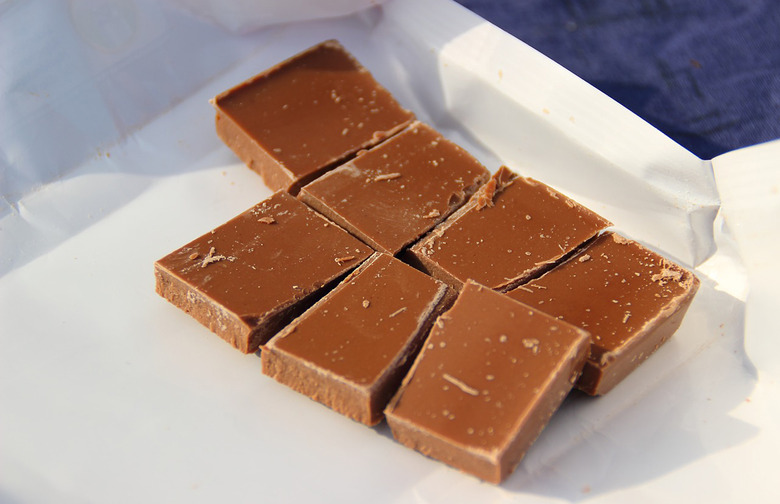The Complete Guide To Dark Chocolate — The Kind That's Good For You
The Complete Guide to Dark Chocolate — The Kind That’s Good for You
We'd like for you to think of dark chocolate in the same way you'd think of plant-based drinks like wine and tea. Too much wine is obviously bad, but having one glass of it can be as healthy as an hour in the gym. Similarly, teas like green tea can be healthy, but most (if not all) teas have a diuretic effect which seems healthy until you're on your eighth trip to the lavatory during your second hour of work. Like wine and tea, then, dark chocolate is best consumed in moderation. Don't let the Easter bunny completely derail your diet.
Choose Your Dark Chocolate Wisely
When selecting a chocolate to enjoy, look on the package for a number. This number, a percentage, is usually listed on the front of a chocolate bar and it represents the percentage of cacao beans (or, ultimately, cocoa powder) in the chocolate. The healthiest versions of chocolate products, dark chocolates, will have 70 percent or more. Any less than this will most likely mean more sugar, more cocoa butter, or more of both. A great example of a dark chocolate with a healthy nutrition label is Alter Eco's Dark Blackout. This 85 percent cocoa dark chocolate lists only three ingredients in addition to cacao beans: cocoa butter, raw cane sugar, and vanilla beans.
Don’t Choose: Milk Chocolate
Milk chocolate contains a relatively low percentage of cocoa at somewhere between 10 and 20 percent. This type of chocolate also contains milk solids and sugar.
Don’t Choose: Semi-Sweet Chocolate
You've probably seen semi-sweet chocolate included in recipes for brownies and cakes, but at just 40 to 62 percent cocoa beans, semi-sweet chocolate doesn't quite hit the healthy mark.
Don’t Choose: Sweet Dark Chocolate
Sweet dark chocolate, although its name contains "dark chocolate," is not the type of dark chocolate you want to eat if you're looking to utilize chocolate as a healthy, beneficial food. At 35 to 45 percent cocoa, there's just too much room for other unhealthy ingredients to be added in.
Don’t Choose: White Chocolate
White chocolate is made with cocoa butter, sugar, milk, emulsifier, vanilla, and, on occasion, other flavorings. If you hadn't noticed, there are no actual cocoa solids from the bean in this to give it a percentage. Thus, it has zero percent cocoa and isn't healthy chocolate at all.
Go for Bittersweet
As noted, chocolates with a cocoa percentage of 70 or higher are the healthiest types. Bittersweet chocolate's percentage ranges from 65 to 80 percent, making it a very viable healthy dark chocolate option. It benefits from containing a large percentage of healthy cacao beans and a moderate to light amount of sweetness from ingredients like cane sugar and cocoa butter. We'll refer to bittersweet chocolate as "dark chocolate" from here on out.
How Much Bitterness Can You Handle?
Unsweetened chocolate will contain almost 100 percent cocoa solids. With that being said, its bitterness is almost unbearable when eaten plain (just ask kids to try dark chocolate and see how they react). This type of dark chocolate, the darkest chocolate, is best used in recipes that specifically call for unsweetened chocolate.
Mineral Breakdown
According to Authority Nutrition, consuming 100 grams of dark chocolate with 70 to 85 percent cocoa will provide you with 58 percent of the recommended daily amount of magnesium, 67 percent of your daily iron, 89 percent of the recommended amount of copper, and a whopping 98 percent of your daily manganese requirement. A 100 gram serving is a lot of dark chocolate to consume in one sitting, but eating a smaller serving (less than 40 grams) will still help your efforts to avoid some common mineral deficiencies.
More Fiber for Fullness
There are an astounding 11 grams of fiber in 100 grams of bittersweet chocolate. Fiber, in addition to keeping your system running smoothly and promoting weight-loss, can make you feel full. With that being said, snacking on a piece or two of dark, bittersweet chocolate can prevent you from overindulging on other treats.
Nitric Oxide and Improved Blood Flow
Dark chocolate contains flavanols, which have been shown not only to reverse the effects of age-related memory loss but also to mildly improve blood flow. Flavanols stimulate the production of nitric oxide by the lining of the arteries, and the presence of nitric oxide can cause arteries to relax, reducing blood pressure.
Oxygen Radical Absorbance Capacity (It Deals With Antioxidants)
Oxygen Radical Absorbance Capacity (ORAC) helps measure antioxidant activity in foods. Raw cocoa powder, on a list that is based on a US Department of Agriculture finding, ranks first amongst the top 10 antioxidant foods. It outranks popular, trendy superfoods that benefit from being promoted as "antioxidant-rich" like goji berries and açaí. Dark chocolates contain a higher amount of raw cocoa powder (again, this is just ground cacao beans), meaning that they're inherently healthier than chocolates with less cocoa.
Polyphenols and Their Relation to Safer Cholesterol Levels
LDL is "bad" cholesterol, and HDL is "good" cholesterol. In one study, polyphenols like catechins and procyanidins found in cocoa powder were shown to contribute to reduced LDL levels and an increase in HDL. Additionally, the study showed that cocoa powder can protect against the oxidation of "bad" cholesterol. Less oxidized LDL means a lower chance of cholesterol becoming lodged in the arteries, and less cholesterol in the arteries means a lower chance of heart disease. That's why dark chocolate made our list of 12 Heart-Healthy Foods You Should Eat.
Popular Brands of Healthy Dark Chocolate
There are dozens of brands producing healthy dark chocolate, but you'll find that bars which are organic, fair trade, and non-GMO are the best for both you and the environment. This list isn't exhaustive, but brands like Alter Eco, Green & Black's, and Sweetriot are doing their best to provide healthy, safely sourced, socially responsible dark chocolates.
Warning: Dutching Is Bad
Some dark chocolates will say "processed with alkali" on them. Chocolates processed with alkali are treated with an alkalizing agent in order to mellow out the taste and change the chocolate's color. This process, known as dutching, will reduce your dark chocolate's flavanol content, so we suggest avoiding it.
